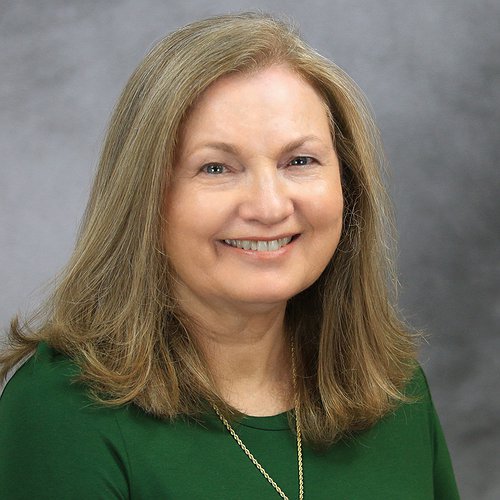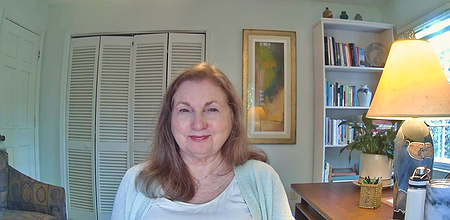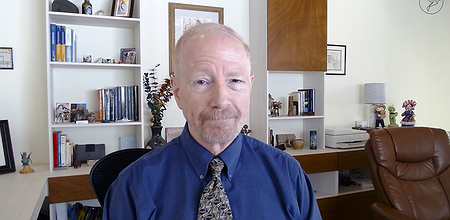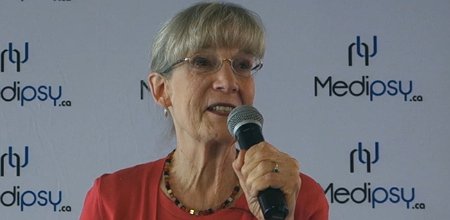- Assess for vagal system states and related behaviors
- Demonstrate strategies designed to help clients to identify, accept, and tolerate vagal system states
- Employ Polyvagal informed strategies from mindfulness and other mental health treatments to establish greater vagal system resiliency
- Discuss how to recognize and repair relational disconnects in the therapeutic setting utilizing a Polyvagal informed approach
Applying Polyvagal Principles to Help Clients Build Nervous System Resilience
Dr. Debra Alvis, Psychologist
Integrate the “science of safety” in your clinical practice
Excerpt:
- 5h of continuing education
- 33 lessons that last from 5 to 15 minutes each
- 1 certificate of achievement
- 1 PowerPoint
- 1 bibliography
- 1 course evaluation
- 7-day money back guarantee
- Unlimited access
- 83% of participants who completed the satisfaction survey declare they would recommend this course to a colleague
Overview
Polyvagal Theory has often been called “the science of safety”—an apt description, as a sense of safety is essential for us to thrive, love, and fully engage in life. Yet many clients struggle to find and maintain this foundational sense of security. By illuminating the ways our autonomic nervous system shifts among mobilization, disconnection, and engagement, Polyvagal Theory offers vital psychological and physiological insights. These insights inform more effective strategies for treating trauma, addressing relational challenges, and improving mood disorders.
This workshop will show you how to apply Polyvagal Theory in clinical practice, providing a comprehensive approach to intervention. You will learn to recognize clients’ autonomic responses and, crucially, how to help them re-pattern those responses to support an enduring sense of safety. Through experiential exercises and guided worksheets, you will translate theory into actionable interventions, enhancing your capacity to foster resilience and regulation in your clients.
Key Topics Covered:
- Social Engagement: learn techniques to enhance connection and safety in therapeutic settings.
- Risks and Limitations in Clinical Practice: potential pitfalls and ethical considerations.
- Components of Secure Attachment: understand how attachment styles intersect with autonomic states.
- The Polyvagal Perspective on Trauma: learn how trauma disrupts autonomic functioning and gain tools to promote healing and resilience.
- Working with the Five Senses: incorporate sensory-based interventions to help clients anchor in safety and regulation.
- Readdressing the Somatic Narrative: support clients in identifying, understanding, and transforming the narratives stored in their bodies.
- How to Tone the Vagal Nerve: discover practical exercises and lifestyle adjustments that strengthen vagal tone, enhancing self-regulation.
- A Somatic Psychotherapy Framework: integrate these approaches within a broader somatic psychotherapy model to create holistic and client-centered interventions.
By the end of this workshop, you will have a toolkit of Polyvagal-informed strategies that foster emotional safety, enrich therapeutic relationships, and support clients in building lasting resilience.
About the expert

Dr. Debra Alvis, PhD, MMT, C-IAYT, is a licensed psychologist and wellness consultant whose compassion fatigue trainings have supported healthcare professionals worldwide, including medical staff at prominent state university health centers. She developed the Mind/Body Program at the University of Georgia, providing clinician training that integrates contemplative approaches into psychotherapy. While serving as a professor at the University of Georgia, she supervised doctoral students and co-led a research team exploring applied mindfulness practices.
For over 20 years, Dr. Alvis has designed individual and group programs focused on enhancing stress hardiness, work-life balance, and resilience among professionals in empathy-intensive fields. Her extensive experience across diverse medical and mental health settings gives her a unique understanding of the demands on clinicians and the potential toll on their well-being.
An international speaker and retreat leader, Dr. Alvis also maintains a private psychotherapy practice. Her trainings have helped thousands of clinicians enrich their work by blending contemplative practices, somatic psychotherapies, and Polyvagal-informed interventions. She is certified as both a mindfulness meditation teacher and a yoga therapist, reflecting her deep commitment to holistic and integrative approaches to care.
Learning objectives
Learning material
A theoretical course illustrated with clinical examples. This course is composed of videos of 5 to 15 minutes each. The PowerPoint of the course to download.
Syllabus
- PowerPoint
- 1. Introduction
- 2. Contemplative Practice
- 3. Disclaimers
-
Polyvagal Theory & How It Drives Behaviors
- 4. The Biology of Safety and Danger
- 5. Evolutionary Changes and Adaptive Functions
- 6. Defining Neuroception
- 7. Co-Regulation Through Social Engagement Behaviors
- 8. Polyvagal Informed Therapy
-
Establish Disorder Specific Skills to Address Mood and Attachment
- 9. Recognize & Shift Nervous System States for Depression
- 10. Savor Moments
- 11. AWE
- 12. Build Secure Attachment
-
Negotiate Trauma Treatment
- 13. Definition of Trauma
- 14. Polyvagal Perspective on Trauma
- 15. Repattern Social Withdrawal & Shutdown Responses
- 16. Why Work with the Body
- 17. Reading and Addressing the Somatic Narrative
-
Recognize Autonomic States & Strengthen Resiliency Through Contemplative Practice
- 18. Using the 5 Senses
- 19. Tone the Vagal Nerve
- 20. Interoceptive Awareness
- 21. Vagal Strengthening
-
The Polyvagal Therapeutic Container
- 22. The 3 Parts Breath
- 23. Therapeutic Presence, Attunement, Resonance, Trust
- 24. A Lapse of Therapeutic Presence
- 25. Evoking Safety with the Environment
-
Return to Practice Integrating a polyvagal Approach
- 26. Establish Relational Reciprocity & Repair Skills
- 27. Build Relationships with Self and Others
- 28. Advices and Last Thoughts
- 29. Practice- Bells of Mindfulness
- 30. Practice- Movement with Breath
- 31. Practice- The Use of Poetry and Sound
- 32. Recap
- 33. Conclusion
- Bibliography
-
Additional Resources
- Handouts 1
- Handouts 2
- Handouts 3
- Handouts 4
- Handouts 5
CE Credits
Download a certificate of successful completion.
Audience
This course is intended for mental health professionals.
Your comments
"Good information not always found in other learning, especially packaged as ir is!"
A social worker (Canada)
Registration
Ask a question
Do you have a question? Then email us at contact@asadis.net
Frequently asked questions
-
Is there an evaluation at the end of the course?
To validate the achievement of the learning objectives, a final evaluation in the form of true/false questions is required. It must be completed in order to obtain the certificate of completion.
In addition, an optional self-assessment is offered at the beginning and end of the course, allowing you to measure your progress on the targeted skills.
These evaluations are not graded and are intended primarily to support your professional reflection.
-
I have a disability. Can I receive specific support?
Yes! This training is offered as a pre-recorded video format, without subtitles. If you have a disability, we can provide an adapted alternative (technical assistance for viewing or individual supervision). For any request, please contact our disability coordinator at the following address: contact@asadis.net
-
How long do I have access to the course?
After your registration, the course is accessible anytime and from anywhere with unlimited access.
-
When does the course start?
That is entirely up to you! When you buy a course, you'll receive an access link that you can activate when you want.
-
Is there a student rate?
Yes there is! To learn more, email us at contact@asadis.net.
You may also be interested in:
Legal notice
The courses offered by ASADIS are accredited by different professional organisations. In addition, ASADIS is approved by the Canadian Psychological Association to offer continuing education for psychologists. ASADIS maintains responsibility for the program.
The CPA’s approval of an individual, group, or organization as a CE Sponsor or Provider is restricted to the activities described in the approved application or annual report form. The CPA’s approval does not extend to any other CE activity the Sponsor or Provider might offer. In granting its approval, the CPA assumes no legal or financial obligations to Sponsors, Providers, or to those individuals who might participate in a Sponsor or Provider’s CE activities or programs. Further, responsibility for the content, provision, and delivery of any CE activity approved by the CPA remains that of the CE Sponsor or Provider. The CPA disclaims all legal liability associated with the content, provision, and delivery of the approved CE activity.





